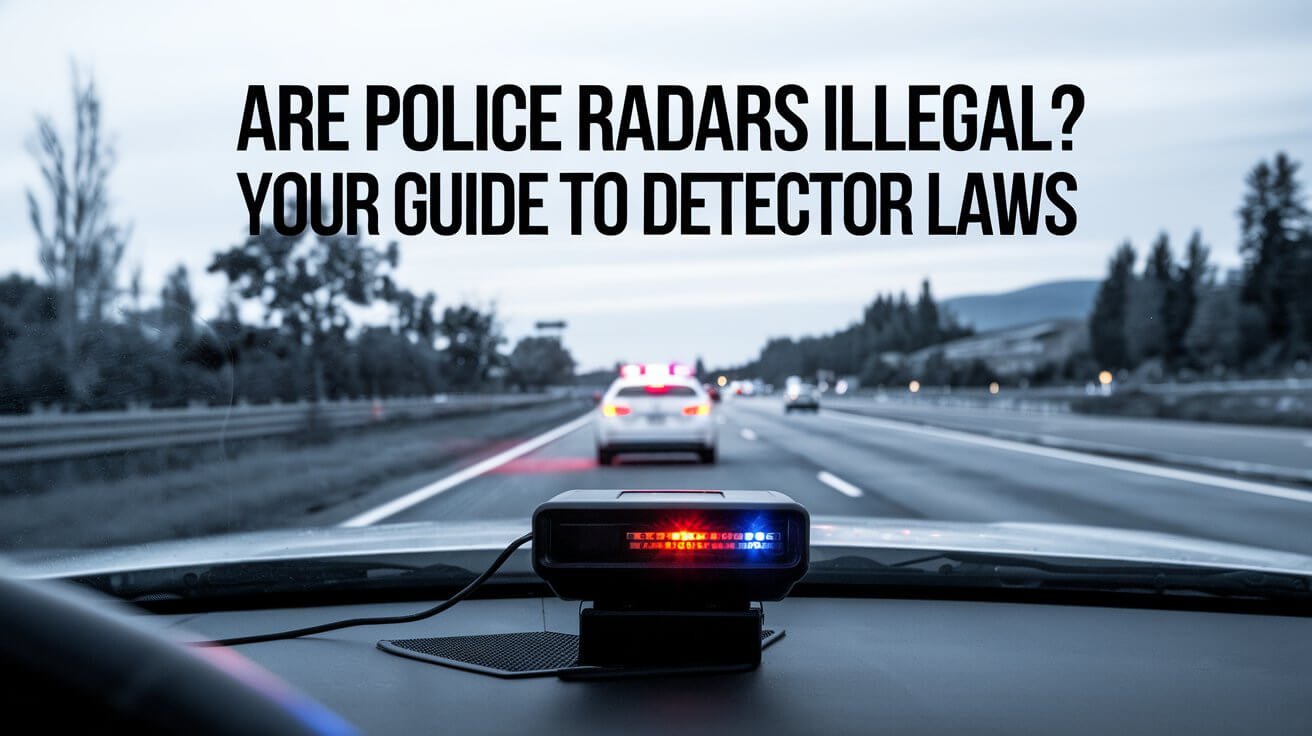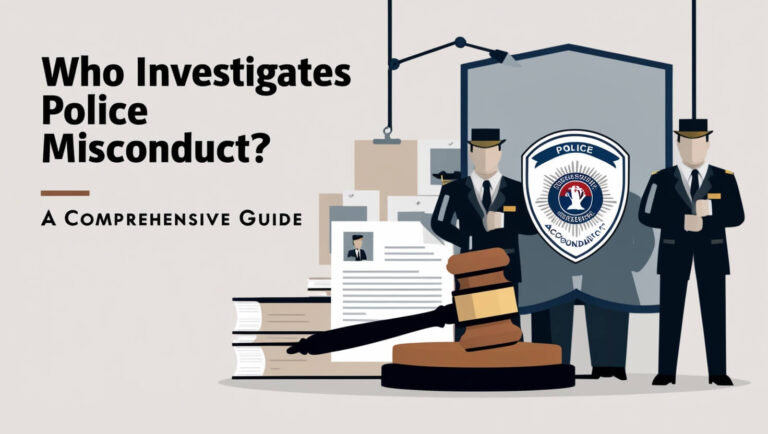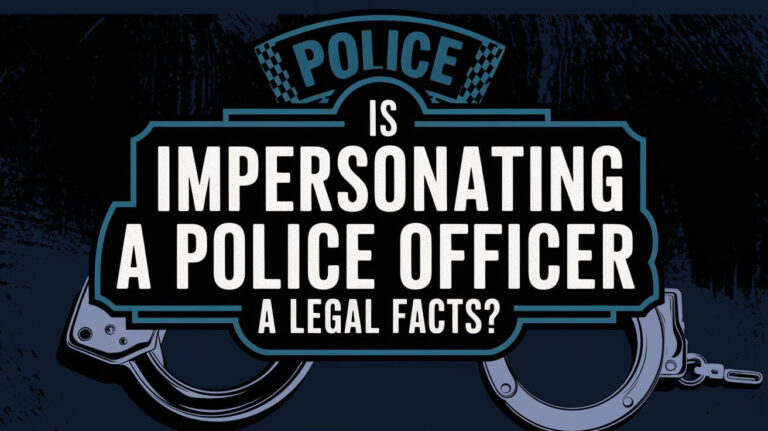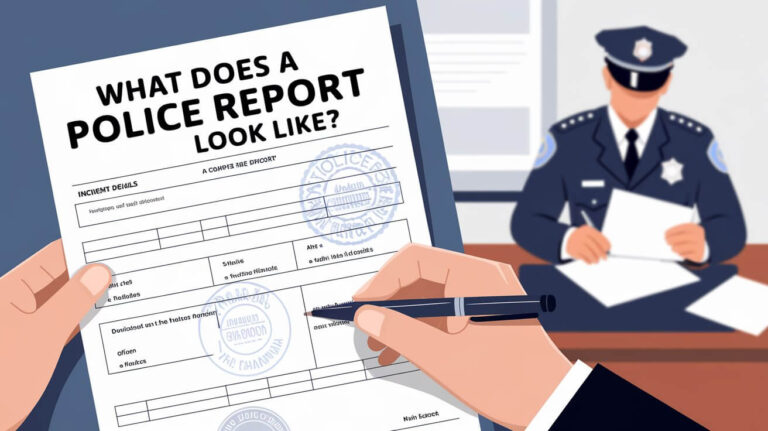Are Police Radars Illegal? Your Guide to Detector Laws

Radar detectors spark debate across the USA. While police use radar guns freely, the devices that spot them face a patchwork of rules. Some states welcome radar detectors, others outlaw them, and many fall somewhere in the middle. Let’s explore the maze of laws governing these controversial gadgets.
The Basics of Police Radar and Radar Detectors
How Police Radar Works
Police radar uses radio waves to measure vehicle speeds. Officers point a radar gun at cars, which sends out signals that bounce off the vehicle and return to the device. The change in frequency helps calculate the car’s speed.
What Are Radar Detectors?
Radar detectors are electronic devices that pick up the radio waves emitted by police radar guns. They alert drivers to the presence of speed traps, giving them a chance to slow down and avoid tickets.
The Ongoing Debate: Safety vs. Privacy
Supporters of radar detectors argue they promote road safety by encouraging drivers to stay within speed limits. Critics say they enable speeding and put other road users at risk. This debate shapes the legal landscape around these devices.
Radar Detector Laws Across the United States
States Where Radar Detectors Are Legal
Good news for most U.S. drivers – radar detectors are legal in private vehicles in 49 out of 50 states. You can use them freely in states like California, Texas, and New York without breaking any laws.
Exceptions to Radar Detector Legality
Virginia stands alone as the only state where radar detectors are completely illegal. Washington D.C. also bans these devices. If you’re driving through these areas, it’s crucial to know the rules to avoid fines.
Commercial Vehicle Restrictions
While most states allow radar detectors in personal cars, the rules change for commercial vehicles. Federal law bans radar detectors in all commercial vehicles over 10,000 pounds. This affects truckers and other professional drivers nationwide.
Virginia: The Exception to the Rule
Why Are Police Radars Illegal in Virginia?
Virginia banned radar detectors in 1962, viewing them as a threat to road safety. The state believes these devices encourage speeding and make roads more dangerous. Despite challenges, this law remains in place today.
Penalties for Using Radar Detectors in Virginia
If you’re caught with a radar detector in Virginia, you could face a fine of up to $250. Police can also confiscate your device. It’s not worth the risk, so stash that detector in your trunk when crossing state lines.
Out-of-State Drivers and Virginia’s Radar Laws
Passing through Virginia? The law applies to everyone, regardless of where your car is registered. Many out-of-state drivers get caught off guard, so spread the word to your road-tripping friends.
The Legality of Different Types of Speed Detection Devices
Radar Detectors vs. Laser Jammers
While radar detectors are mostly legal, laser jammers face stricter rules. These devices interfere with police laser guns and are illegal in many states. Always check local laws before using any speed detection countermeasures.
Are Police Radar Detector Detectors Legal?
Yes, you read that right – some police use devices to detect radar detectors! These are legal for law enforcement and help catch drivers using banned equipment. It’s a cat-and-mouse game of technology on the roads.
Federal Laws and Regulations on Radar Detectors
Department of Transportation Regulations
The Department of Transportation bans radar detectors in commercial vehicles over 10,000 pounds. This rule applies nationwide, overriding any state laws that might be more permissive.
Military Base Restrictions
Even in states where radar detectors are legal, they’re prohibited on military bases. If you’re visiting a base, leave your detector at home to avoid any trouble.
The Evolution of Speed Detection Technology
From Radar Guns to LIDAR
Police technology has come a long way from simple radar guns. LIDAR (Light Detection and Ranging) uses lasers for more accurate speed readings. This tech race pushes radar detector manufacturers to keep up.
How Modern Radar Detectors Work
Today’s radar detectors are smarter than ever. They use GPS to remember false alarm locations and can distinguish between police radar and other signals. Some even connect to smartphone apps for real-time updates.
Pros and Cons of Using Radar Detectors
Potential Benefits for Drivers
Radar detectors can help drivers avoid speeding tickets and stay more aware of their speed. Some argue they make roads safer by encouraging drivers to slow down in areas with speed enforcement.
Safety Concerns and Criticisms
Critics worry that radar detectors give drivers a false sense of security and encourage speeding. There’s also concern that they distract drivers, potentially causing accidents.
Legal Alternatives to Radar Detectors
Speed Limit Apps and GPS Devices
Many GPS devices and smartphone apps now alert drivers to speed limits and known enforcement areas. These legal alternatives can help you stay informed without risking fines.
Defensive Driving Techniques
The safest approach? Simply follow posted speed limits and practice defensive driving. No technology can replace good judgment and careful driving habits.
International Laws on Radar Detectors
Radar Detector Regulations in Canada
Heading north of the border? Radar detectors are illegal in most Canadian provinces. If you’re road-tripping to Canada, leave your detector at home to avoid hefty fines.
European Union Stance on Speed Detection Devices
Rules vary widely across Europe. Some countries allow radar detectors, while others impose strict bans. Always research local laws before driving abroad with any speed detection equipment.
The Future of Speed Enforcement and Detection
Emerging Technologies in Traffic Law Enforcement
Police are exploring new ways to catch speeders, from automated speed cameras to drones. As technology advances, the game of cat and mouse between law enforcement and drivers continues to evolve.
Potential Changes in Radar Detector Legislation
As road safety concerns grow, some lawmakers push for stricter regulations on radar detectors. Keep an eye on local news for any changes that might affect your right to use these devices.
Conclusion
While police radars are legal and widely used, the legality of radar detectors varies across the United States. Most states allow them in private vehicles, but restrictions apply in Virginia, Washington D.C., and for commercial drivers. Always stay informed about local laws, especially when traveling across state lines. Remember, the safest approach is always to follow speed limits and drive defensively.
Frequently Asked Questions About Radar Detector Legality
Are radar detectors legal in my state?
Radar detectors are legal in 49 out of 50 U.S. states for private vehicles. Virginia and Washington D.C. are the exceptions.
Can I use a radar detector in a commercial vehicle?
Federal law prohibits radar detectors in commercial vehicles over 10,000 pounds.
What’s the penalty for using a radar detector in Virginia?
You could face a fine of up to $250 and have your device confiscated.
Are laser jammers legal?
Laser jammers are illegal in many states. Check your local laws before using one.
Can police detect my radar detector?
Yes, some police use radar detector detectors (RDDs) to catch drivers using these devices.
Are radar detectors legal on military bases?
No, radar detectors are prohibited on all U.S. military bases, regardless of state laws.
Can I use a radar detector in Canada?
Radar detectors are illegal in most Canadian provinces. It’s best to leave them at home when traveling to Canada.
Do radar detectors work against LIDAR?
Most modern radar detectors can detect LIDAR, but they may not be as effective against it as they are against traditional radar.
Are there legal alternatives to radar detectors?
Yes, many GPS devices and smartphone apps provide speed limit information and alerts about known enforcement areas.
Will radar detectors become illegal in more states?
While there’s ongoing debate, there are currently no widespread efforts to ban radar detectors in additional states. However, laws can change, so it’s important to stay informed.






